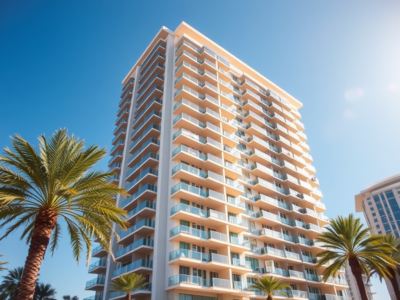When renting in Dubai, tenants are sometimes faced with situations that necessitate filing a complaint against their landlords. Disputes can arise from various scenarios such as unfair eviction notices, maintenance issues, or disagreements over rent increases. In such instances, knowing where and how to file a complaint can be crucial in ensuring your rights are protected. This article provides a comprehensive guide on navigating the disputes resolution process, specifically targeted at tenants in Dubai seeking justice through the correct legal channels.
Understanding the Dubai Rental Dispute Centre (RDSC)
The RDSC is the primary entity for resolving rental disputes in Dubai. Established under the directive of the Ruler of Dubai, the centre offers an efficient means of settling disagreements between landlords and tenants. Landlords must adhere to the RDSC’s decisions, and tenants can file complaints confidently, knowing there is a dedicated system for their concerns. RERA (Real Estate Regulatory Agency), which is a part of Dubai Land Department (DLD), oversees the RDSC and provides a systematic approach to handling rental dispute cases.
Under the jurisdiction of RDSC, both parties in a dispute—landlords and tenants—will need to present their case with solid evidence for consideration. This organization ensures that all disputes related to rentals are solved in a fair and impartial manner. Therefore, whether you are disputing over renting increases, deposit refunds, or service charge issues, the RDSC is equipped to handle your complaints.

Preparing to File Your Complaint: What You Need to Know
Before moving ahead with filing your complaint, you must gather the necessary documents and understand the tenancy laws in Dubai. You will need your tenancy contract, any relevant communication between you and your landlord, and evidence supporting your claim. This evidence could include photographs, receipts, or witness testimonies. Landlords must provide tenants with receipts and proper documentation for any financial transactions related to the rental, and as a tenant, possessing these documents will bolster your case.
If you’re considering filing a complaint with the RDSC, familiarizing yourself with the procedures and requirements of RERA is also beneficial. Sometimes, RERA complaints are submitted before escalating the issue to the RDSC. RERA can also advise on matters related to renting and tenancy contracts within Dubai.
Step-by-Step Guide to Filing a Complaint Against a Landlord
To ensure you’re fully informed before initiating a complaint, follow this step-by-step guide to navigate the process without complications:
- Attempt to Resolve the Dispute Amicably. Always try to settle disputes with landlords through direct communication. If this does not resolve the issue, you might need to seek mediation services before taking formal action.
- Gathering and Preparing Your Documentation. Make sure you have all the necessary paperwork in place, as this will be crucial when presenting your case to the RDSC.
- Filing Your Complaint with RDSC. This is where you officially start the disputes resolution process. You will also need to pay a fee, which is typically a percentage of your annual rent.
- The Hearing Process. After filing, a hearing date will be set where both parties will present their case to a judge or arbitrator. Here, you will need to make your case clear and concise, sticking to the facts and presenting your documents promptly.
- The RDSC’s Decision and Further Actions. The RDSC aims to resolve disputes swiftly, and you should expect a decision within a month. If you are dissatisfied with the outcome, appeals are possible within a stipulated timeframe.
Filing your complaint properly is key to potentially winning your disputes case. Follow these steps diligently to increase your chances of a favorable outcome.

Alternative Avenues for Resolving Rental Disputes in Dubai
If you’re facing rental disputes in Dubai, aside from the RDSC, there are alternative methods that might also be worth considering. The Dubai Municipality, for example, can get involved in cases concerning health and safety violations of rental property. In extreme cases where landlords violate the law to an extent where a criminal act is suspected, involving the Dubai Police might also be necessary.
You might also seek help from community management offices or owners’ associations if the issue pertains to communal areas or services. These entities could offer mediation between tenants and landlords or could escalate the concern to the RDSC if required.
Tips for a Smooth Complaint Process
When engaged in a rental dispute, having a clear plan of action and knowing what steps to take can greatly influence the outcome of your case. To ensure a smooth process, it’s advisable to take the following steps:
| Tip | Explanation |
|---|---|
| Effective Communication | Ensure all communication with your landlord is professional and well-documented. |
| Timeliness | File your complaint as soon as possible and adhere to any deadlines provided by RDSC. |
| Documentation | Keep a thorough record of any interactions, transactions, and issues relevant to the rental. |
| Legal Counsel | Consider consulting a legal expert in real estate for advice on presenting your case. |
Above all, remaining calm and collected will be your best asset when attending hearings and will also help in the accurate presentation of your disputes case against your landlord.

Conclusion
Being well-informed about the process of filing a complaint against a landlord in Dubai is integral for tenants facing rental disputes. Through RDSC, you have access to a specialized judiciary system designed to adjudicate rental cases and protect your rights as a tenant. Remember that documenting issues, understanding your tenancy contract, and abiding by the correct procedures are essential for a successful dispute resolution. Fortunately, the systems in place are robust, and with the right preparation, tenants can ensure that their disputes are heard and resolved fairly.
FAQs
Q1: Can I file a rental dispute claim in Dubai without a lawyer?
A1: Yes, tenants can file a claim directly with the RDSC without legal representation; however, seeking legal advice might strengthen your case.
Q2: How much does it cost to file a complaint with RDSC?
A2: The fee for filing a rental dispute case depends on the annual rent cost and could also include additional charges based on your specific requirements.
Q3: How long does the RDSC take to resolve a dispute?
A3: The RDSC aims to resolve cases within 30 days post the initial hearing, although the timeline can vary based on the complexity of the case.
Q4: Can I continue to live in my rented property while disputing a case with my landlord?
A4: Tenants are generally allowed to stay in their rented premises until a decision is reached, unless a legal order states otherwise.
Q5: What should I do if I’m not happy with the RDSC’s resolution?
A5: If tenants or landlords are unsatisfied with the RDSC’s decision, they have the right to appeal within 15 days of the judgment date.




